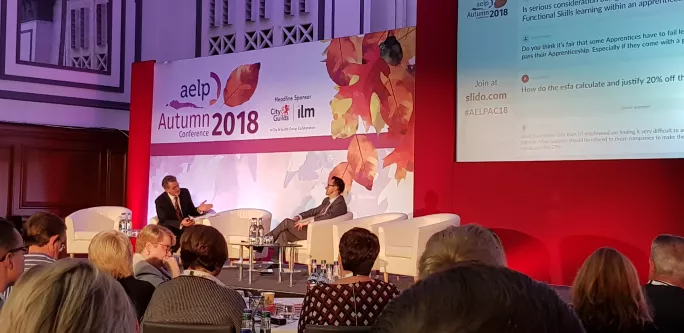Apprenticeship providers could soon be given a limit to how much they are able to earn from apprenticeship delivery, according to the Education and Skills Funding Agency’s (ESFA) director for apprenticeships.
Speaking at today’s Association of Employment and Learner Providers (AELP) autumn conference in Manchester, Keith Smith said the new apprenticeship-provider register would open in the coming “weeks, rather than months, possibly sooner”. “And when we do open it, it will be a register that remains open and people can apply and reapply,” he added.
Existing providers would be invited to reapply, he said, and this would be used as a way to weed out providers that are not performing at the required standard. The application process would now contain some specific questions on a provider’s ability to deliver the new apprenticeship standards, he added.
Mr Smith said there would be more scrutiny of aspects such as business addresses and trade history. Providers would also need to show that they would be in a position to deliver apprenticeships within 12 months. “What that does mean is that there will be a much stronger emphasis on quality, delivery models and the type of business you actually are,” said Mr Smith. Figures from the AELP had indicated that as many as a third of providers on the register might not be delivering apprenticeships.
Funding limits
The ESFA was also planning to test recommended funding limits, he said: “We are going to test what that would look like. It would mean they would have a financial cap on how much they are able to earn from the system.” The detail of how these limits would work would be developed in dialogue with the sector, he stressed.
The point of them would be “to control, not just for quality reasons, the potential size and expansion of providers”.
“There needs to be a process by which we control the ability of some people to be able to trade and to be able to grow, and we need to be transparent about that,” said Mr Smith. He added, however, that this would not be part of the register “when it opens on day one”.
He also added: “It is not there to stop super-big providers from being super-big.”





